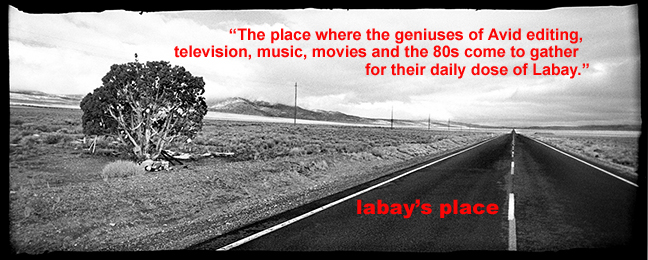(From The Hollywood Reporter -- By Paul J. Gough)
As things turned from bad to worse in THE GULF COAST REGION a day after HURRICANE KATRINA roared through, network and cable news journalists on Tuesday struggled to cover the ever-widening story.
With possibly HUNDREDS DEAD, many injured and millions displaced -- including most of NEW ORLEANS, which was underwater -- reporters found themselves covering a story that got bigger as daylight rose on what looked on television like a scene from A HOLLYWOOD DISASTER MOVIE.
"This city is so devastated," said JOHN ROBERTS, the veteran CBS NEWS Correspondent who covered his first hurricane, HUGO, in 1989 in SOUTH CAROLINA. Roberts spoke Tuesday afternoon from A SATELLITE TRUCK in what he described as "the only dry part of NEW ORLEANS."
Journalists, who on Monday had weathered the 150 mph-plus winds and heavy rains from KATRINA, found themselves faced not only with storm damage but also shortages of food, water and gasoline. Rising water in NEW ORLEANS KO'd AN NBC NEWS TRUCK and cut off most TV journalists in THE CRESCENT CITY from the rest of the country. And the deteriorating conditions there led to concerns about looting, other crime, dysentery and other water-borne diseases in the 90 degree-plus heat.
That's atop a day marked by spotty communications and techniques and technology developed for the war in IRAQ being used to get the story out from nature's battlefield in and around NEW ORLEANS.
"We're facing a couple of real tough days that will test the mettle of our personnel," said DAVID VERDI, Vice President Worldwide Newsgathering at NBC NEWS.
Many correspondents and producers were out of touch with the networks' EAST COAST headquarters for much of the day, thanks to power disruptions and broken-down or severely taxed cell phone and landline systems.
"The only way we have of communicating with anybody is SATELLITE PHONES," said MARK STRASSMAN, another CBS NEWS Correspondent. "CELLS don't work, BLACKBERRYS don't work."
JON BANNER, Executive Producer of ABC's WORLD NEWS TONIGHT, said it's one of the most difficult stories to cover that he has seen in a long time in the U.S.
"We have a lot of real estate to cover and very little technology that will work. We've struggled to get a good way to transmit pictures from NEW ORLEANS," Banner said. "It's getting supplies for our troops, it's trying to get these places that are blocked off by law enforcement and nature. It's a struggle."
Network executives said there have been few injuries among its employees -- a CNN camera operator broke his foot Monday but continued to work. CNN, NBC and THE WEATHER CHANNEL were among the outlets reporting lost or heavily damaged satellite trucks.
One of NBC's two satellite trucks in NEW ORLEANS suddenly found itself in 2 feet of rushing water because of a burst levee; as the driver tried to get it to drier ground it hit something in the water that punctured the tire, Verdi said. The crew managed to get it out of the water and it's on a dry spot, but a tow truck is stuck behind a police roadblock.
THE BLOOM MOBILE, a mobile satellite uplink truck made famous by the late NBC NEWS Correspondent DAVID BLOOM, was called into action for the production of the NBC NIGHTLY NEWS with anchor BRIAN WILLIAMS, who is on the scene in NEW ORLEANS.
THE WEATHER CHANNEL lost two rental cars and a satellite truck during the height of the storm as meterologist JIM CANTORE and crew scrambled from floor to floor at a veterans home to escape the rushing water. The satellite truck was stuck nose first in the water, said TERRY CONNELLY, Senior Vice President and General Manager of THE WEATHER CHANNEL.
Network executives spent as much time trying to find ways to get food and supplies to the staff in the field.
"We spent the greater part of the morning and much of the afternoon on supply lines," NBC's Verdi said. "We have four RVs, these are sleep-six-comfortable big RVs, bringing food, water and medical supplies from DALLAS." They also have hired a driver who owns a fuel truck to drive fuel, which is scarce throughout THE GULF COAST. Similar efforts are under way at other networks.
"We're OK for the time being, but that's clearly a concern of ours," ABC's Banner said.
GASOLINE, or a lack of it, has factored into coverage. Strassman's five-person crew drove hours and hundreds of miles without finding an open gasoline station; he said lines were forming in front of stations that hoped to be open within several days. Without power, it was going to be difficult, Strassman said.
Strassman, who noted that his burden was nothing compared to his colleagues in NEW ORLEANS, said his crew tried to get to GULFPORT, MISSISSIPPI, with two RVs and a satellite truck but found they had only enough gasoline to get there and not to go anywhere else.
"Getting food, getting water, getting gas are as much a part of your daily decision-making as anything else of covering the story," Strassman said.
Roberts, working on little sleep and reporting almost constantly, acknowledged the conditions. He said many in the crew planned ahead -- packing sandwiches, beef jerky, anything that could be portable and keep -- but he left so quickly that he didn't have much time to pack food. He had A NUTRIGRAIN BAR Monday, A NUTRIGRAIN and a few PRINGLES POTATO CHIPS Tuesday.
"Our guys, since they've been through this, take a lot of food with them, but it's junk food," THE WEATHER CHANNELS's Connelly said. "They know they'll be without power, without showers."
Connelly added -- "They're grungy and mostly they're tired."
"If we get our food and water and medical supplies and everyone stays healthy, we'll be OK," NBC's Verdi said.
Subscribe to:
Post Comments (Atom)


No comments:
Post a Comment